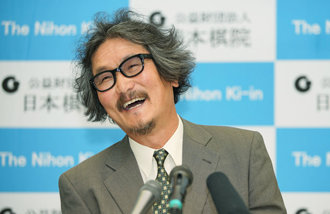National and local governments should convince residents to infrastructure projects
National and local governments should convince residents to infrastructure projects
Posted May. 15, 2024 07:47,
Updated May. 15, 2024 07:47
On May 2, residents of Wonsam County in Yongin City, Gyeonggi Province burnt a fake bier with a banner that read "Never Ever" in protest in front of the Yongin City Hall building. Wonsam County is where SK hynix is investing 120 trillion won to build a semiconductor cluster. Some 200 protesters gathered in front of the city hall and chanted "SK Out."
SK hynix has been implementing its co-prosperity partnership agreement with the local community leader, which includes realigning sewers, running youth nurturing projects, and installing sports facilities. However, the local community is making additional demands, including management rights over restaurants and cafes around the company's plant Fab construction site and rights over Fab cleaning and cafeteria businesses.
The commencement of the Fab construction has been delayed for as many as three years. It was initially supposed to start in 2022 when the industrial complex building plan was announced in 2019. However, the start was delayed until next year due to various issues, such as Yeoju City's stonewalling, which was related to the negotiations over land compensation and water usage. As the very basic ground is being smoothed, the company is nervously watching the situation and whether the scheduled plan may be delayed yet again due to opposition from the local community.
The situation is similar for Samsung Electronics, which decided to invest 360 trillion won in building the Yongin Semiconductor Cluster. On May 2, Korea Land & Housing Corporation (LH) will give a presentation about the cluster for local residents. However, the presentation was canceled amid residents' demands requesting the withdrawal of the national industrial complex designation altogether, as it was decided unilaterally.
In February, the government designated Hwacheon Dam as the main water source for the Yongin Semiconductor Cluster. This triggered resistance from the Gangwon Province, which argued that the national government had decided to take advantage of its key resources without any consultation. The community further insisted that they needed an appropriate level of compensation as they had been suffering from the adverse side effects of the dam construction.
"Time is equivalent to subsidies," President Yoon Suk Yeol said last Thursday during his press conference on May 9 regarding supporting the semiconductor industry. “The government will deregulate to speed up the overall process related to power and water, infrastructure, plant construction, etc.” However, the aforementioned situations seem deeply worrying.
Korea is already lagging in the race. According to a report by The Dong-A Ilbo and the Industrial Research Institute, which aggregated semiconductor-related manufacturing facility investments announced in the United States, Japan, the European Union (EU), and Taiwan since 2021, a total of 753 trillion won in projects are expected to be mostly completed by 2030. While Korea has only long-term plans, such as Samsung's and SK's semiconductor clusters, which are aiming for 2047, these are faltering right from the start.
The Semiconductor Industry Association and Boston Consulting Group recently released similar reports. According to them, by 2032, Korea's share in advanced logic chip manufacturing will shrink from 31% (in 2022) to 9%, while the United States is expected to surge from 0% to 28%. This is due to the United States offering subsidies through its CHIPS Act and attracting investments from Taiwan's TSMC, Samsung Electronics, and U.S.-based Intel."
The past 30 years they have marked a phase of expansion in the semiconductor industry in Northeast Asia. The United States outsourced production to Northeast Asia to produce chips more affordably. However, the situation changed with the onset of the COVID-19 semiconductor supply shortage and the U.S.-China tensions. In the semiconductor industry, where the 'race for ultra-fast chips' is taking place, falling behind in the race means inevitable failure. To ensure that time is equivalent to subsidies a hollow slogan, the government must remove obstacles to investment, and local authorities must bolster efforts to persuade residents.







